第152章 CHAPTER XXXVIII(1)
In Which We Take a Step to the Centre of Egoism They met; Vernon soon left them.
"You have not seen Crossjay?" Willoughby inquired.
"No," said Clara. "Once more I beg you to pardon him. He spoke falsely, owing to his poor boy's idea of chivalry."
"The chivalry to the sex which commences in lies ends by creating the woman's hero, whom we see about the world and in certain courts of law."
His ability to silence her was great: she could not reply to speech like that.
"You have," said he, " made a confidante of Mrs. Mountstuart."
"Yes."
"This is your purse."
"I thank you."
"Professor Crooklyn has managed to make your father acquainted with your project. That, I suppose, is the railway ticket in the fold of the purse. He was assured at the station that you had taken a ticket to London, and would not want the fly."
"It is true. I was foolish."
"You have had a pleasant walk with Vernon--turning me in and out?"
"We did not speak of you. You allude to what he would never consent to."
"He's an honest fellow, in his old-fashioned way. He's a secret old fellow. Does he ever talk about his wife to you?"
Clara dropped her purse, and stooped and picked it up.
"I know nothing of Mr. Whitford's affairs," she said, and she opened the purse and tore to pieces the railway ticket.
"The story's a proof that romantic spirits do not furnish the most romantic history. You have the word 'chivalry' frequently on your lips. He chivalrously married the daughter of the lodging-house where he resided before I took him. We obtained information of the auspicious union in a newspaper report of Mrs.
Whitford's drunkenness and rioting at a London railway terminus--probably the one whither your ticket would have taken you yesterday, for I heard the lady was on her way to us for supplies, the connubial larder being empty."
"I am sorry; I am ignorant; I have heard nothing; I know nothing," said Clara.
"You are disgusted. But half the students and authors you hear of marry in that way. And very few have Vernon's luck."
"She had good qualities?" asked Clara.
Her under lip hung.
It looked like disgust; he begged her not indulge the feeling.
"Literary men, it is notorious, even with the entry to society, have no taste in women. The housewife is their object. Ladies frighten and would, no doubt, be an annoyance and hindrance to them at home."
"You said he was fortunate."
"You have a kindness for him."
"I respect him."
"He is a friendly old fellow in his awkward fashion; honourable, and so forth. But a disreputable alliance of that sort sticks to a man. The world will talk. Yes, he was fortunate so far; he fell into the mire and got out of it. Were he to marry again . .
"She ..."
"Died. Do not be startled; it was a natural death. She responded to the sole wishes left to his family. He buried the woman, and I received him. I took him on my tour. A second marriage might cover the first: there would be a buzz about the old business: the woman's relatives write to him still, try to bleed him, I dare say. However, now you understand his gloominess. I don't imagine he regrets his loss. He probably sentimentalizes, like most men when they are well rid of a burden. You must not think the worse of him."
"I do not," said Clara.
"I defend him whenever the matter's discussed."
"I hope you do."
"Without approving his folly. I can't wash him clean."
They were at the Hall-doors. She waited for any personal communications he might be pleased to make, and as there was none, she ran upstairs to her room.
He had tossed her to Vernon in his mind, not only painlessly, but with a keen acid of satisfaction. The heart is the wizard.
Next he bent his deliberate steps to Laetitia.
The mind was guilty of some hesitation; the feet went forward.
She was working at an embroidery by an open window. Colonel De Craye leaned outside, and Willoughby pardoned her air of demure amusement, on hearing him say: "No, I have had one of the pleasantest half-hours of my life, and would rather idle here, if idle you will have it, than employ my faculties on horse-back,"
"Time is not lost in conversing with Miss Dale," said Willoughby.
The light was tender to her complexion where she sat in partial shadow.
De Craye asked whether Crossjay had been caught.
Laetitia murmured a kind word for the boy. Willoughby examined her embroidery.
The ladies Eleanor and Isabel appeared.
They invited her to take carriage exercise with them.
Laetitia did not immediately answer, and Willoughby remarked:
"Miss Dale has been reproving Horace for idleness and I recommend you to enlist him to do duty, while I relieve him here."